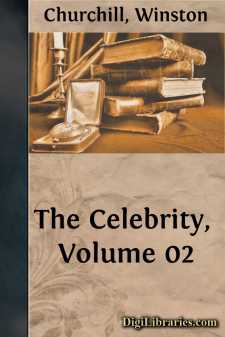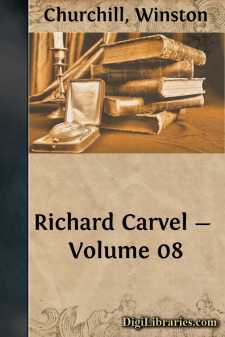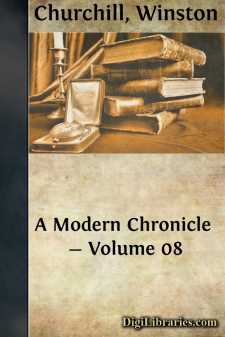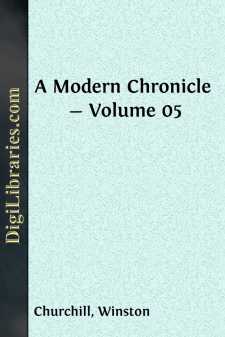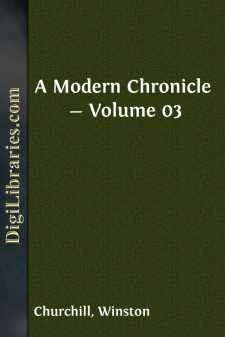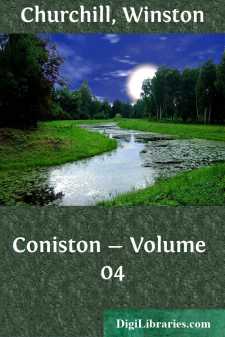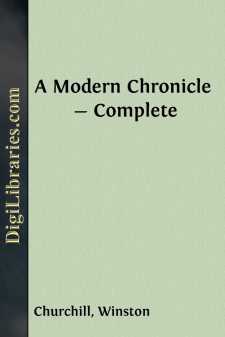Categories
- Antiques & Collectibles 13
- Architecture 36
- Art 48
- Bibles 22
- Biography & Autobiography 813
- Body, Mind & Spirit 142
- Business & Economics 28
- Children's Books 15
- Children's Fiction 12
- Computers 4
- Cooking 94
- Crafts & Hobbies 4
- Drama 346
- Education 46
- Family & Relationships 57
- Fiction 11828
- Games 19
- Gardening 17
- Health & Fitness 34
- History 1377
- House & Home 1
- Humor 147
- Juvenile Fiction 1873
- Juvenile Nonfiction 202
- Language Arts & Disciplines 88
- Law 16
- Literary Collections 686
- Literary Criticism 179
- Mathematics 13
- Medical 41
- Music 40
- Nature 179
- Non-Classifiable 1768
- Performing Arts 7
- Periodicals 1453
- Philosophy 64
- Photography 2
- Poetry 896
- Political Science 203
- Psychology 42
- Reference 154
- Religion 513
- Science 126
- Self-Help 84
- Social Science 81
- Sports & Recreation 34
- Study Aids 3
- Technology & Engineering 59
- Transportation 23
- Travel 463
- True Crime 29
Coniston - Volume 02
Description:
Excerpt
When William Wetherell and Cynthia had reached the last turn in the road in Northcutt's woods, quarter of a mile from Coniston, they met the nasal Mr. Samuel Price driving silently in the other direction. The word "silently" is used deliberately, because to Mr. Price appertained a certain ghostlike quality of flitting, and to Mr. Price's horse and wagon likewise. He drew up for a brief moment when he saw Wetherell.
"Wouldn't hurry back if I was you, Will."
"Why not?"
Mr. Price leaned out of the wagon.
"Bije has come over from Clovelly to spy around a little mite."
It was evident from Mr. Price's manner that he regarded the storekeeper as a member of the reform party.
"What did he say, Daddy?" asked Cynthia, as Wetherell stood staring after the flitting buggy in bewilderment.
"I haven't the faintest idea, Cynthia," answered her father, and they walked on.
"Don't you know who 'Bije' is?
"No," said her father, "and I don't care."
It was almost criminal ignorance for a man who lived in that part of the country not to know Bijah Bixby of Clovelly, who was paying a little social visit to Coniston that day on his way home from the state capital,—tending, as it were, Jethro's flock. Still, Wetherell must be excused because he was an impractical literary man with troubles of his own. But how shall we chronicle Bijah's rank and precedence in the Jethro army, in which there are neither shoulder-straps nor annual registers? To designate him as the Chamberlain of that hill Rajah, the Honorable Heth Sutton, would not be far out of the way. The Honorable Heth, whom we all know and whom we shall see presently, is the man of substance and of broad acres in Clovelly: Bijah merely owns certain mortgages in that town, but he had created the Honorable Heth (politically) as surely as certain prime ministers we could name have created their sovereigns. The Honorable Heth was Bijah's creation, and a grand creation he was, as no one will doubt when they see him.
Bijah—as he will not hesitate to tell you—took Heth down in his pocket to the Legislature, and has more than once delivered him, in certain blocks of five and ten, and four and twenty, for certain considerations. The ancient Song of Sixpence applies to Bijah, but his pocket was generally full of proxies instead of rye, and the Honorable Heth was frequently one of the four and twenty blackbirds. In short, Bijah was the working bee, and the Honorable Heth the ornamental drone.
I do not know why I have dwelt so long on such a minor character as Bijah, except that the man fascinates me. Of all the lieutenants in the state, his manners bore the closest resemblance to those of Jethro Bass. When he walked behind Jethro in the corridors of the Pelican, kicking up his heels behind, he might have been taken for Jethro's shadow. He was of a good height and size, smooth-shaven, with little eyes that kindled, and his mouth moved not at all when he spoke: unlike Jethro, he "used" tobacco.
When Bijah had driven into Coniston village and hitched his wagon to the rail, he went direct to the store. Chester Perkins and others were watching him with various emotions from the stoop, and Bijah took a seat in the midst of them, characteristically engaging in conversation without the usual conventional forms of greeting, as if he had been there all day.
"H-how much did you git for your wool, Chester—h-how much?"
"Guess you hain't here to talk about wool, Bije," said Chester, red with anger....



